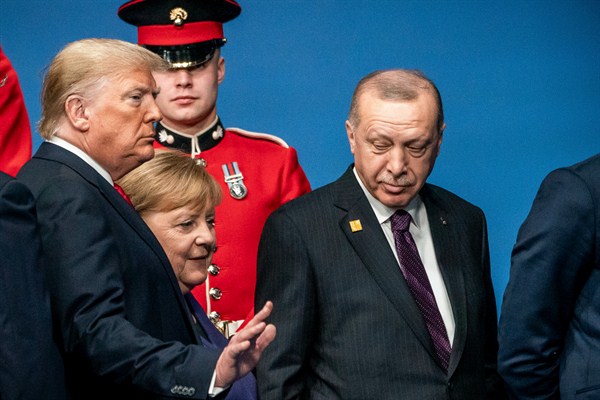The recent NATO summit in London underscored how Turkey’s relations with its allies are becoming increasingly confrontational. In the run-up to the meeting, Turkish President Recep Tayyip Erdogan threatened to veto the alliance’s defense plan for Poland and the Baltic states unless key Western powers became more attentive to Turkish interests in Syria. Although Erdogan eventually signed on to the summit’s final communique, the Turks are continuing to stonewall approval of the plan until the West agrees to designate the YPG, a Syrian Kurdish militia, as a terrorist group.
Turkey has been vocally complaining about Western support for the YPG and other Syrian Kurdish fighters for the past few years. The Syrian Kurds, anchored by the YPG, have been the U.S.-led coalition’s principal partners on the ground in the fight against the Islamic State in northeastern Syria. But the Turks consider the YPG a Syrian Kurdish offshoot of the outlawed Kurdistan Workers’ Party, or PKK, a Turkish Kurdish insurgent group that has been fighting the Turkish state, often using terrorist tactics, for over 40 years. Both groups advocate for greater Kurdish political autonomy within their respective countries, which is vehemently opposed by Turks across the political spectrum, from Erdogan’s Islamist base to the right-wing nationalist parties. Erdogan has even threatened to open the floodgates on the 3.6 million Syrian refugees currently in Turkey, facilitating their passage to Europe if NATO and the European Union don’t come around to Ankara’s thinking on the matter.
Erdogan’s hardline approach isn’t necessarily out of step with Turkish public opinion. Indeed, many Turks have been mistrustful, or outright hostile, toward the United States and Europe for many years now. Over 80 percent of Turks believe U.S. President Donald Trump cannot be trusted. Militantly pro-government pundits in Turkish media increasingly direct vitriol at NATO, accusing the alliance of actively plotting to thwart Turkey’s great power ambitions. Perhaps most importantly for Erdogan, he benefits domestically when he is perceived to be standing up to an “arrogant” West.

